Top Story
Up Close and Personal feat. Jaelle Ang, The Great Room
In the eighth instalment of the Up Close and Personal series, ULI student members spoke with Jaelle Ang, CEO and Founder of The Great Room.
5 October 2022
Elizabeth Low, Senior Analyst, ESR Singapore | YLG Member
The ULI Young Leaders Group (YLG) Singapore, in conjunction with Storefriendly and Partners Group, organised a sharing session on self-storage facilities. Amid rising housing costs and the need for rightsizing, self-storage facilities have indubitably emerged as an essential space solution in a post-pandemic era. The discussion focused on self-storage facilities as an emerging alternative asset class for real estate investments in Asia Pacific, and why these facilities are becoming increasingly favoured by individuals and corporates alike.
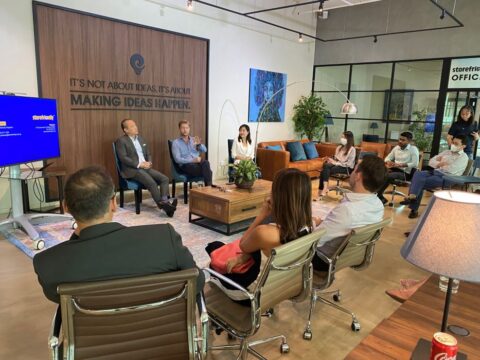
(Panel L-R) Joe Chien, Jes Johansen, Adeline Liew
About Storefriendly
The session was kicked off with a presentation on Storefriendly by Jes Johansen, CEO and Founder, Storefriendly Self Storage Group. Storefriendly is a space solution service provider focusing on relatively small storage spaces and self-storage units, for both individuals and businesses. These are provided with 24-hour security, professional transport of goods, and 24/7 accessibility.
Apart from regular self-storage, Jes shared that Storefriendly has diversified into other product offerings that differentiate themselves from other self-storage operators. These include Storefriendly GO, their proprietary robot technology; Storefriendly Park, a coworking concept in their facilities; and Storefriendly Business, an all-in-one storage and workspace setup with climate control, internet and high security tailored for businesses.
Storefriendly currently operates in eight locations in Singapore, four of which are self-owned properties, all strategically located near residential areas as residents form c. 70% of their customer base. This includes their flagship Storefriendly Centre at 107 Eunos Avenue 7. With a GFA of 132,430 sq. ft., the facility boasts 90% occupancy.
In addition, Storefriendly also prioritises sustainable solutions in their facilities, which are well-lit and airconditioned on a 24/7 basis. Of their four self-owned buildings, three are retrofitted with solar panels, which supply close to 40% of their energy consumption.
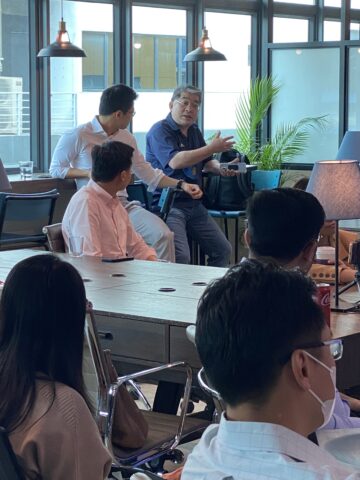
Storefriendly Client: Sam How, Turbo Swim Asia
The appeal of self-storage facilities
Following the presentation by Jes, a panel discussion featuring Jes as well as Joe Chien, Managing Director, Head Private Real Estate Asia, Partners Group commenced. This was moderated by Adeline Liew, Director, Occupier Strategy & Solutions, Asia-Pacific, Knight Frank.
The Covid-19 pandemic has led to paradigm shifts in space allocation for both homes and workspaces. As Joe aptly put it, the main driver for the self-storage industry is change.
For individuals, the importance of decluttering is now more prominent than ever. With working from home becoming mandatory during the pandemic, many found themselves scrambling to make space in their homes for makeshift workstations. Meanwhile, with hybrid working resulting in a structural shift for corporates, self-storage facilities have become essential for the rightsizing of office spaces.
Sharing his personal experience as a tenant at Storefriendly, Sam How, Director, Turbo Swim Asia, emphasised that the main reason for choosing Storefriendly as a storage solution is the scalability and flexibility that self-storage facilities offer. As Turbo Swim Asia adopts a B2B business model, it is important that they are able to lease more space or downsize quickly according to the level of customer orders. Also equally important is the high accessibility and security that Storefriendly facilities offer.
Self-storage as a real estate investment
According to Jes, the business case for self-storage facilities is a compelling one. The industry is yield-enhancing in nature, and features higher rents and exit prices as compared to standard industrial properties. Based on his calculations, the exit price and exit equity of a typical self-storage facility is 1.7x and 1.9x of a standard industrial property respectively.
Further, Singapore is underserved relative to other mature markets in terms of number of facilities and gross floor area. Jes stated that Singapore has approximately 150 persons per available storage unit, which pales in comparison to 10 in the U.S. and 80 in Hong Kong.

Storefriendly is backed by Partners Group, which invested in Storefriendly less than two years ago. Joe explained that their business model is to accrue higher, long-term rents by acquiring and refurbishing existing buildings to self-storage facilities through upfront capital investments.
The viability of self-storage as a long-term investment is also its wide customer base, which means that occupancy levels at any given point is relatively stable. As Jes opined, customers typically take up small amounts of space, and thus lease expiries have minimal impact on overall occupancy. This is coupled with relatively long average lease durations of 18 months.
The target segment in Singapore and Asia is the growing middle-upper class, who have the capabilities to allocate a small percentage of their income on decluttering their homes. This is especially true in Singapore, where housing costs have been on an upward trajectory while home sizes are getting smaller.
Speaking from his experience in the U.S., Joe added that self-storage in Asia is relatively immature compared to the Americas and Europe where supply is high. Joe believes that the business model of self-storage has potential to be successful in Asia similar to the U.S. – the key lies in market education, as many remain unaware that this market segment exists.
“Everyone needs self-storage, they just don’t know it yet,” said Joe.
The Young Leaders Group Committee thanks the team at Storefriendly for hosting the discussion at Storefriendly Centre.

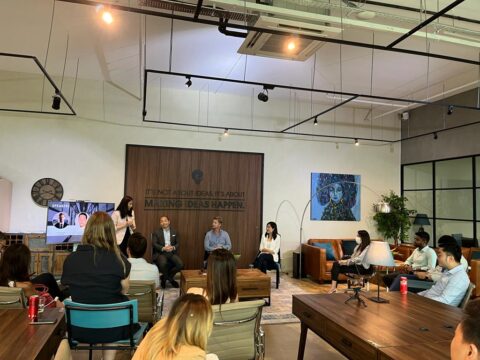
Panel discussion
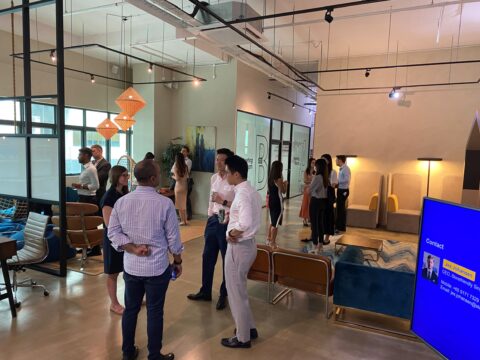
Networking
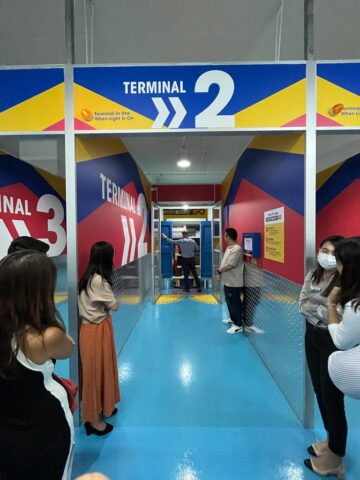
Guided Tour
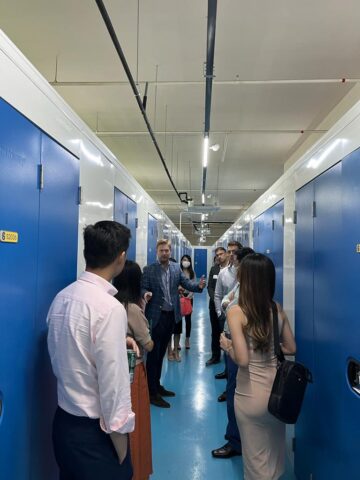
Guided Tour
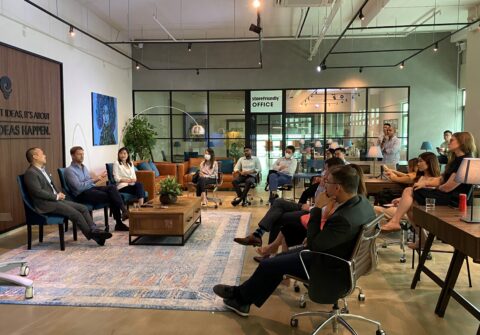
Q&A session
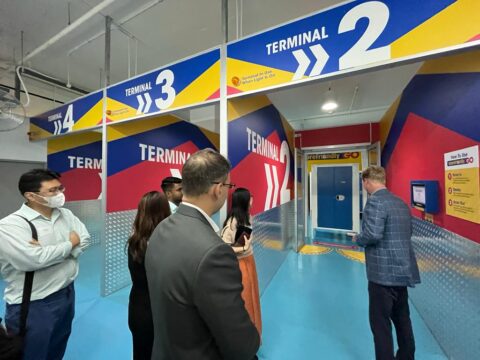
Guided Tour

Q&A discussion facilitated by Adeline Liew, Knight Frank
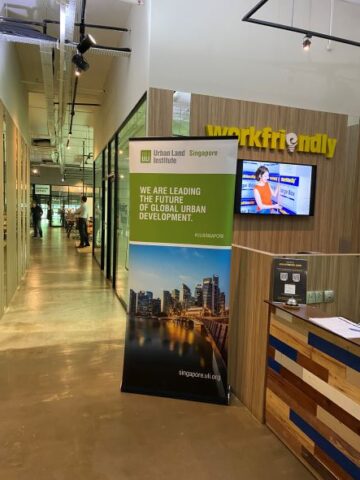
ULI Singapore event hosted by YLG
Don’t have an account? Sign up for a ULI guest account.

Panel discussion

Networking

Guided Tour

Guided Tour

Q&A session

Guided Tour

Q&A discussion facilitated by Adeline Liew, Knight Frank

ULI Singapore event hosted by YLG